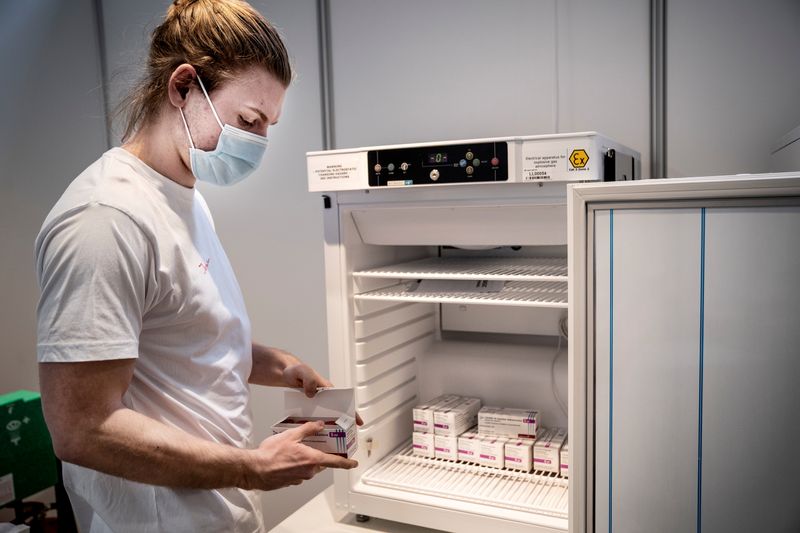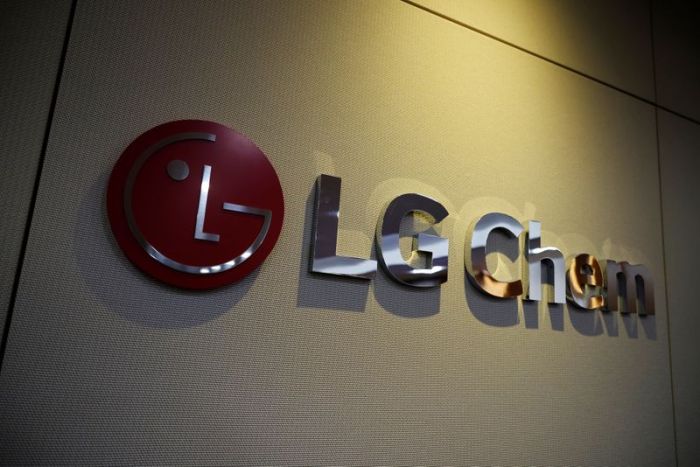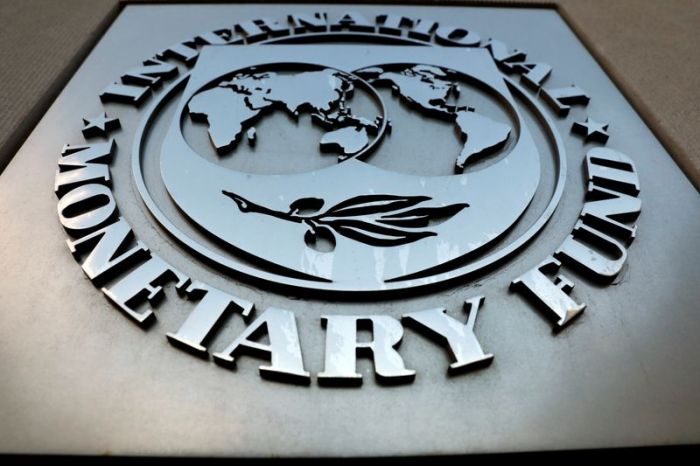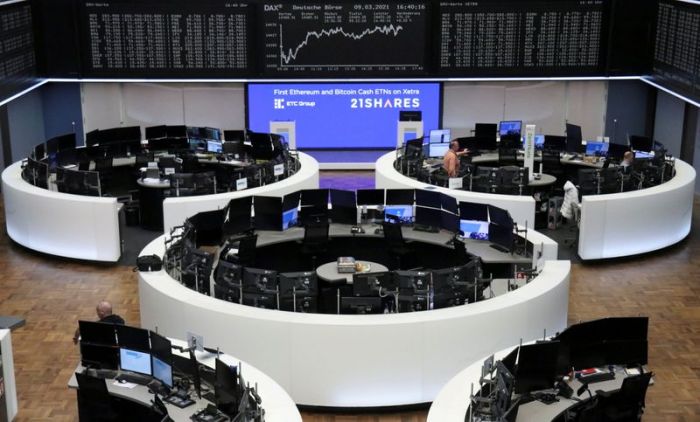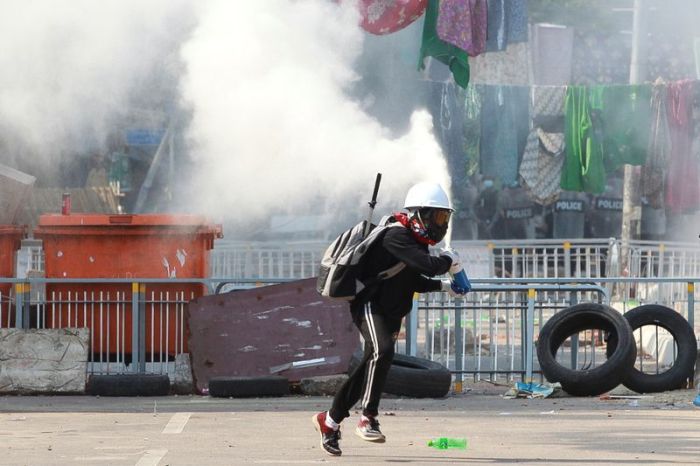BRUSSELS (Reuters) – Washington has told the European Union that it should not expect to receive AstraZeneca COVID-19 vaccines manufactured in the United States any time soon, two EU sources said on Thursday, in a new blow to the bloc’s supplies.
The U.S. message could complicate vaccination plans in the 27-nation EU, which has been grappling since January with delays in deliveries from vaccine makers.
“The U.S. told us there was no way it would ship AstraZeneca vaccines to the EU,” said a senior official directly involved in EU-U.S. talks.
AstraZeneca told the EU earlier this year it would cut its supplies in the second quarter by at least half to less than 90 million doses, EU sources told Reuters, after a bigger reduction in the first three months of the year.
Later, however, AstraZeneca offered to partly plug the gap with vaccines produced outside Europe, including in the United States.
A senior EU diplomat said the European Commission told member states’ diplomats at a meeting in Brussels on Wednesday that the bloc should not expect any exports from the United States “at this point in time”.
AstraZeneca declined to comment.
White House press secretary Jen Psaki told reporters the U.S. government had been clear publicly and privately that it would focus first on ensuring Americans were vaccinated, but direct purchases would be up to countries and companies.
It is unclear whether AstraZeneca is producing much vaccine in the United States or if Washington would apply a restrictive measure on trade. AstraZeneca’s vaccine has not yet been approved for use in the United States.
“The vaccine isn’t approved in the United States, so of course we can’t sell it to other countries yet,” said Margaret Cekuta, a former U.S. trade official who is now a principal with the Capitol Counsel lobbying firm. She said exporting a vaccine before it is approval by the Food and Drug Administration could also raise potential liability problems.
The U.S. comments came after Austria stopped using a batch of AstraZeneca shots while investigating a death from coagulation disorders and an illness from a pulmonary embolism.
Asked about vaccine talks with the United States, European Commission spokesman Eric Mamer said on Thursday: “Whatever the legal situation in the United States, we want to work on the ground with the United States to keep the supply chains open.”
The EU’s executive did not reply to specific questions about a possible move on exports from the United States.
The U.S. stance could jeopardize AstraZeneca’s attempts to bring deliveries closer to its contractual obligation with the EU of 180 million doses in the second quarter.
U.S. President Joe Biden said on Wednesday the U.S. government will first give Americans COVID-19 vaccines, but any surplus would be shared with the world.
AstraZeneca’s COVID-19 vaccines are produced in the United States in a plant near Baltimore run by Catalent, which is listed in the EU supply contract with AstraZeneca as a “back-up supply site” and has been authorized by the EU drugs regulator as a manufacturer of vaccine ingredients.
Vaccines were discussed during a call between the head of the European Commission, Ursula von der Leyen, and Biden last week, and in a meeting between EU industry commissioner Thierry Breton and White House COVID-19 response coordinator, Jeffrey Zients, according to EU statements.
New calls were expected this week, one EU official said.
INDIA
AstraZeneca had also told the EU it could provide extra doses from India, where its vaccines are manufactured by the Serum Institute.
The EU drugs regulators are currently reviewing Serum’s manufacturing site, Reuters exclusively reported earlier in March.
But another EU official said on Thursday the auditing process was “complicated” because the site and the substances used for vaccine production had to be authorised.
The United States is also part of the production network for Johnson & Johnson vaccines due to be used in the EU, because under the EU-J&J contract shots made in the Netherlands would need to be bottled in the United States.
Several European diplomats said they were concerned about J&J production. J&J plans to begin supplying the EU in April.
Reuters exclusively reported on Tuesday that J&J told the EU it was facing supply issues that may complicate plans to deliver 55 million doses of its COVID-19 vaccine to the bloc in the second quarter of the year.
In a separate development, health authorities in Denmark, Norway and Iceland said they had suspended the use of AstraZeneca’s vaccine shots after reports of the formation of blood clots in some recipients.[L1N2L91Q3]
AstraZeneca on Thursday told Reuters the safety of its vaccine had been extensively studied in human trials and peer-reviewed data had confirmed the vaccine was generally well tolerated.
(Reporting by Francesco Guarascio @fraguarascio and John Chalmers; additional reporting by Ludwig Burger in Frankfurt and Nandita Bose and Andrea Shalal in Washington; Editing by Giles Elgood and Stephen Coates)

